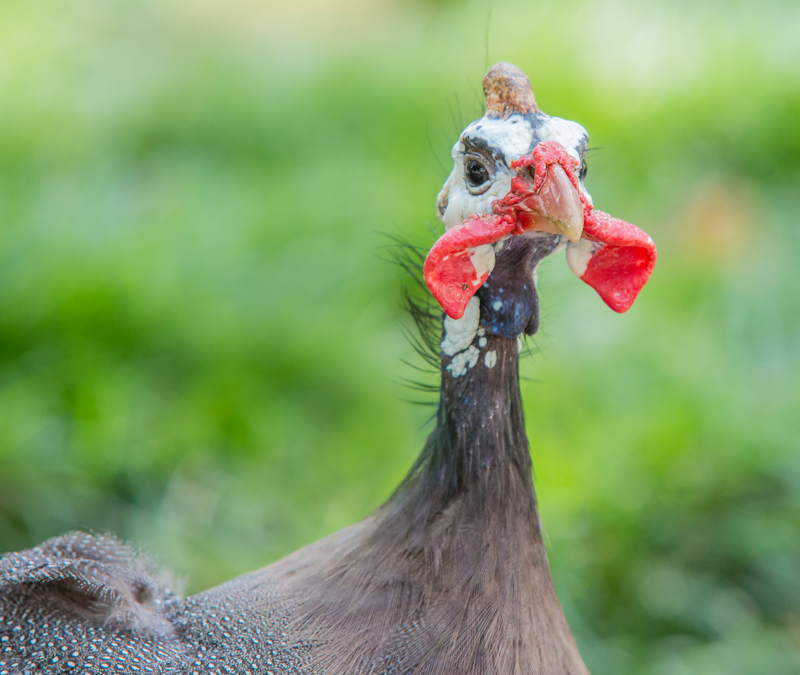Discover the Fascinating World of Guinea Fowl
Meet the Guinea Fowl!
Explore the unique characteristics and benefits of guinea fowl, from their origins in Africa to their role in Caribbean agriculture.
Adaptation
Guinea fowl adapt remarkably well to various climates, making them versatile additions to farms worldwide.
Pest Control
Known for their pest-controlling abilities, guinea fowl help manage insect populations naturally.
Lifespan
With a lifespan of 10-15 years, guinea fowl are long-term companions in both wild and domestic settings.
The Journey of Guinea Fowl
From Africa to the Caribbean: The Guinea Fowl's Story
Guinea Fowl Facts

Discover key statistics about guinea fowl that highlight their unique traits and contributions.
- Gestation Period 26-28 days%
- Lifespan 10-15 years%
- Weaning Period 6-8 weeks%
Male vs. Female Guinea Fowl
Understanding Their Differences
While male and female guinea fowl share many similarities, there are distinct differences in their appearance and behavior. Males typically have larger wattles and helmets, which are the bony protrusions on their heads. Behaviorally, males are often more vocal and can be more territorial, especially during the breeding season. Females, on the other hand, are generally quieter and more focused on nesting and rearing their keets. Both genders, however, are excellent at pest control and exhibit strong social bonds within their flocks.
Ideal Environment for Guinea Fowl
Creating a Thriving Habitat
Guinea fowl thrive best in free-range environments where they have ample space to roam and forage. They are highly social birds that prefer to live in flocks, and they require protection from predators. Their loud calls serve as an effective alarm system, alerting farmers to potential dangers. Providing a safe roosting area at night is crucial, as guinea fowl have a strong homing instinct and will return to their roost. A balanced diet of grains, greens, and protein sources is essential for their health and well-being. With the right environment, guinea fowl can be a valuable addition to any farm, helping to control pest populations naturally.
Creating a Safe and Natural Habitat
In captivity, guinea fowl need a habitat that mimics their natural surroundings as closely as possible. This includes access to open spaces for foraging, as well as sheltered areas where they can retreat and feel safe. Their social nature means they should be kept in groups, and their loud, distinctive calls can be a useful alert system for farmers. Ensuring they have a balanced diet and clean water will help them thrive and contribute to the ecosystem by controlling pests and insects.
Fascinating Facts About Guinea Fowl

Pest Control Experts
Guinea fowl are exceptional at controlling pests, particularly ticks and insects. Their foraging habits help keep pest populations in check, making them a valuable asset to any farm.
Strong Homing Instinct
Unique Vocalizations
Explore Our Guinea Fowl Gallery
Vibrant Guinea Fowl Images
Guinea Fowl Activities!
Engage children with interactive guinea fowl experiences! Create fun crafts, embark on nature walks, participate in diet demonstrations, and enjoy educational story time. Perfect for kids and school groups!



